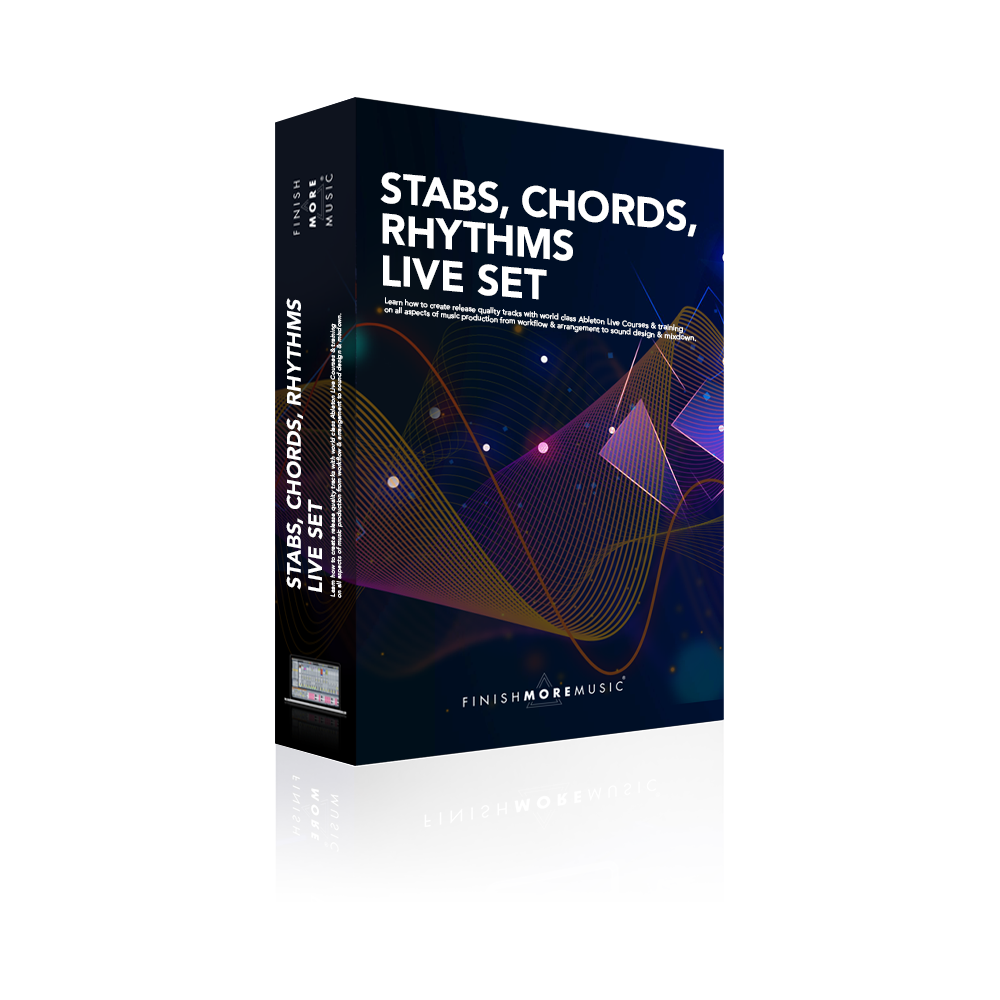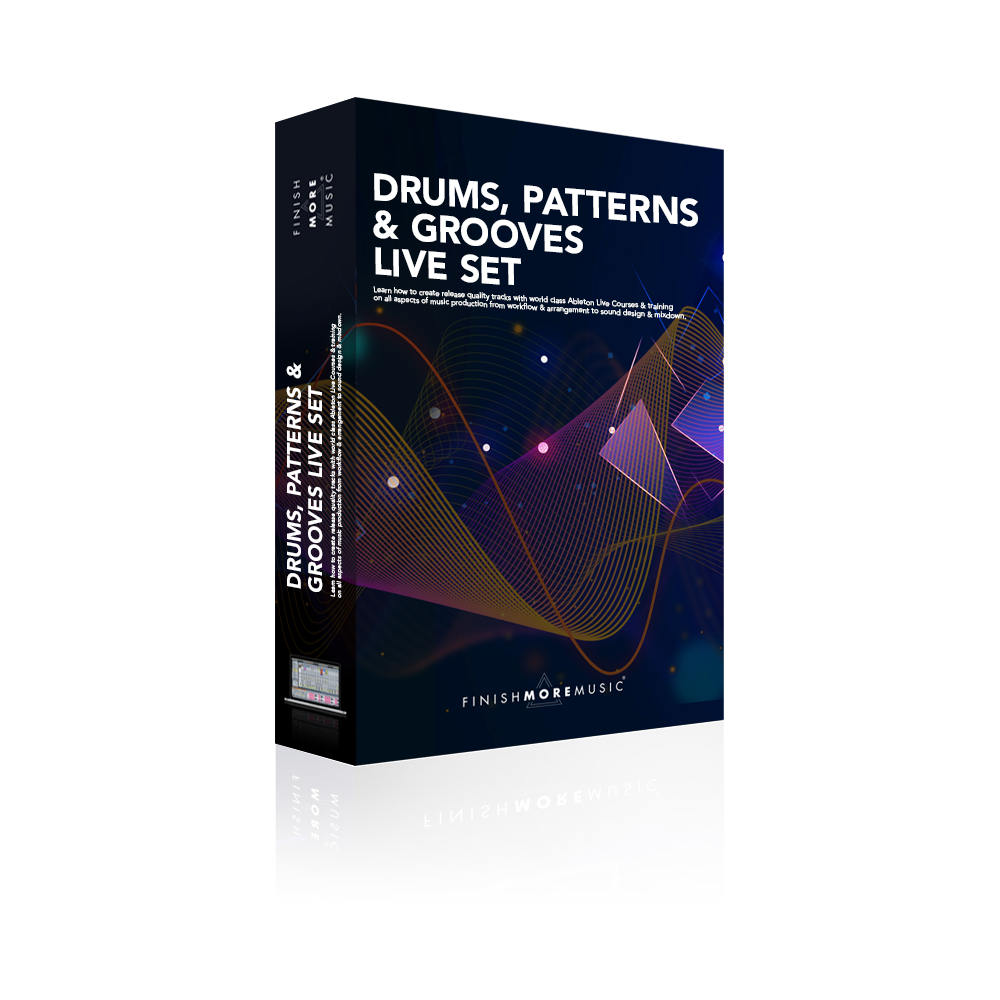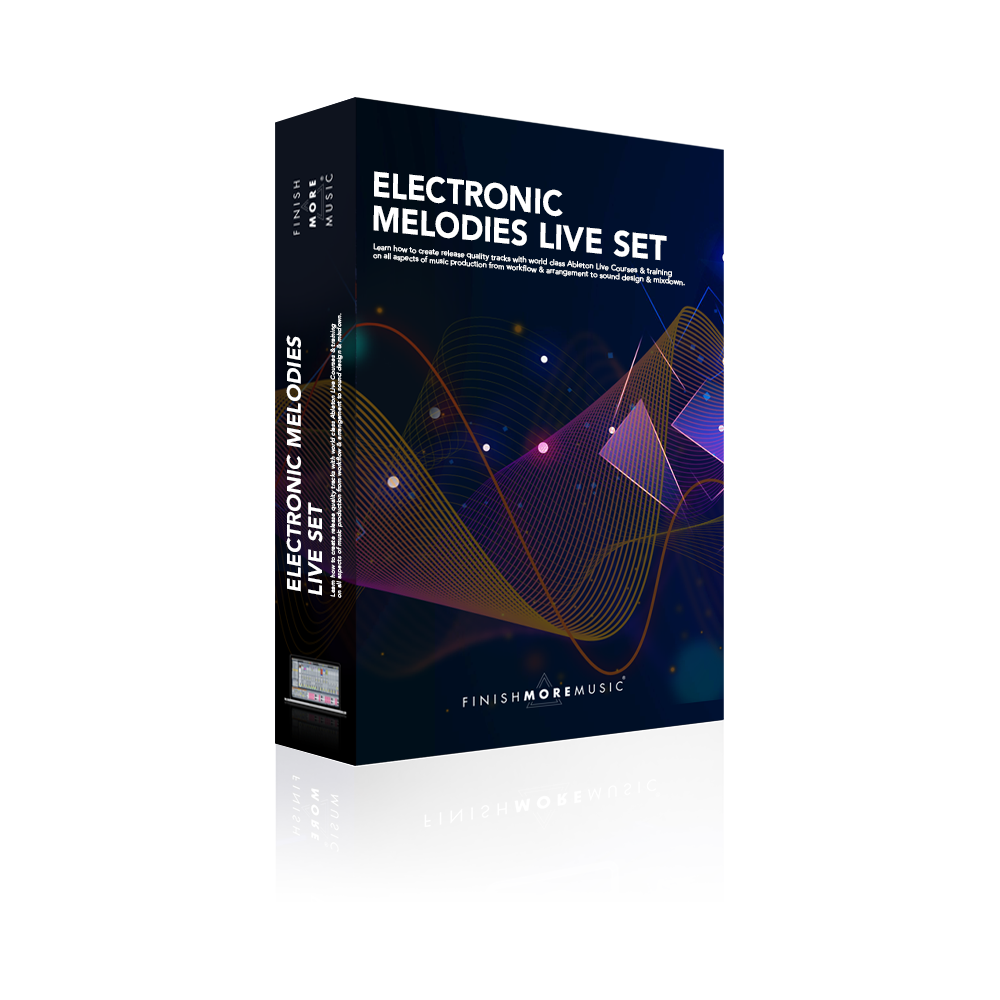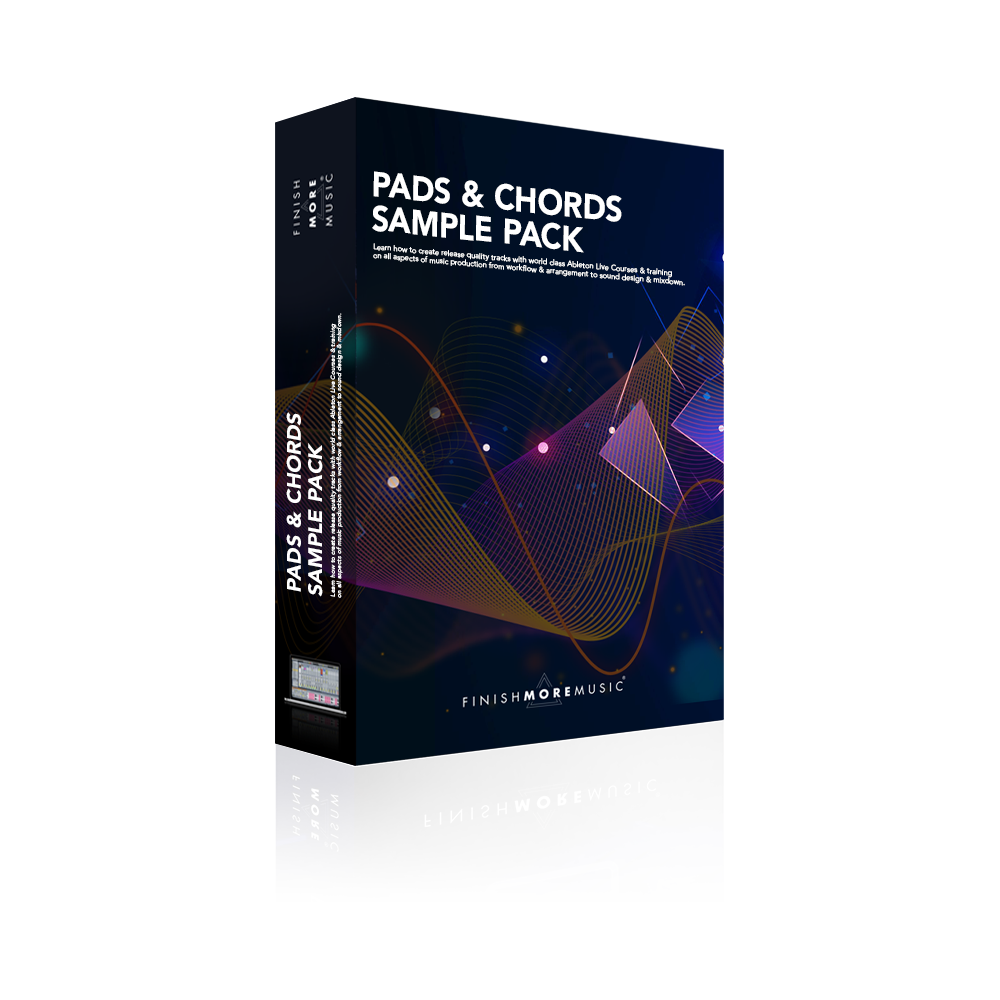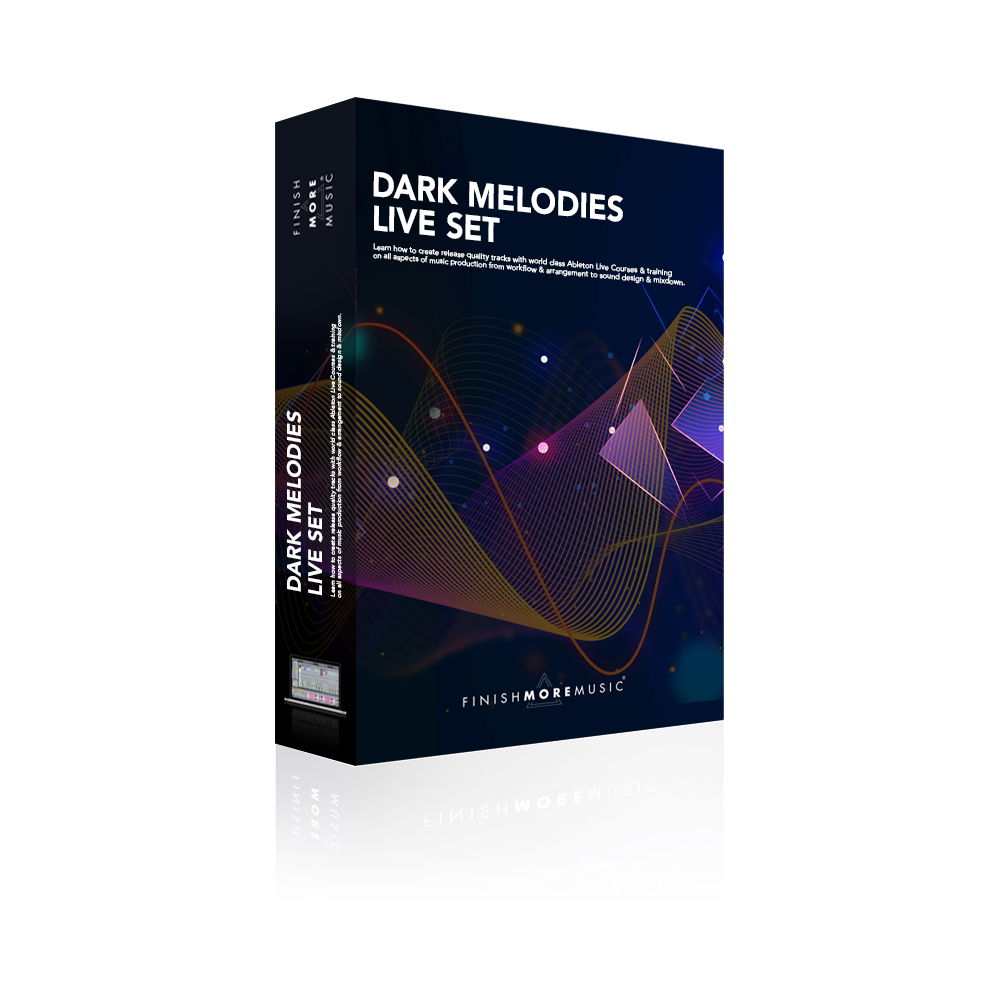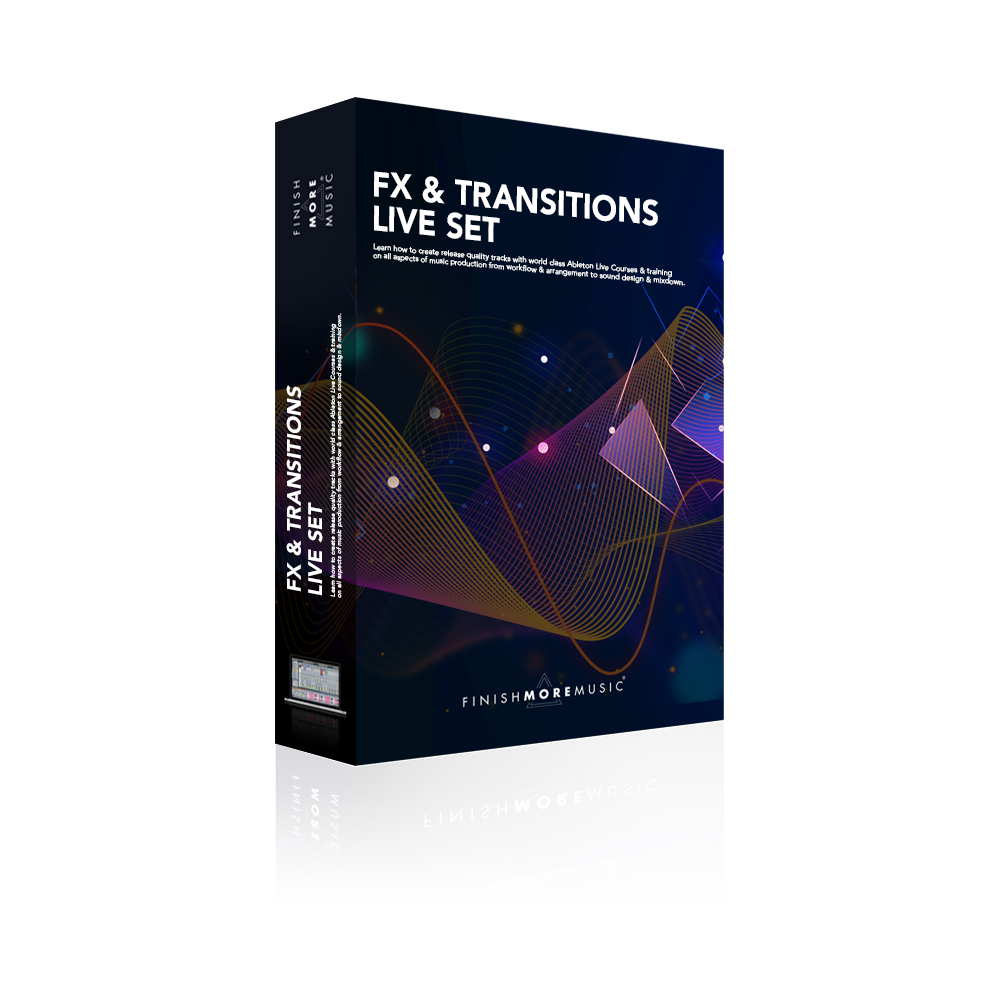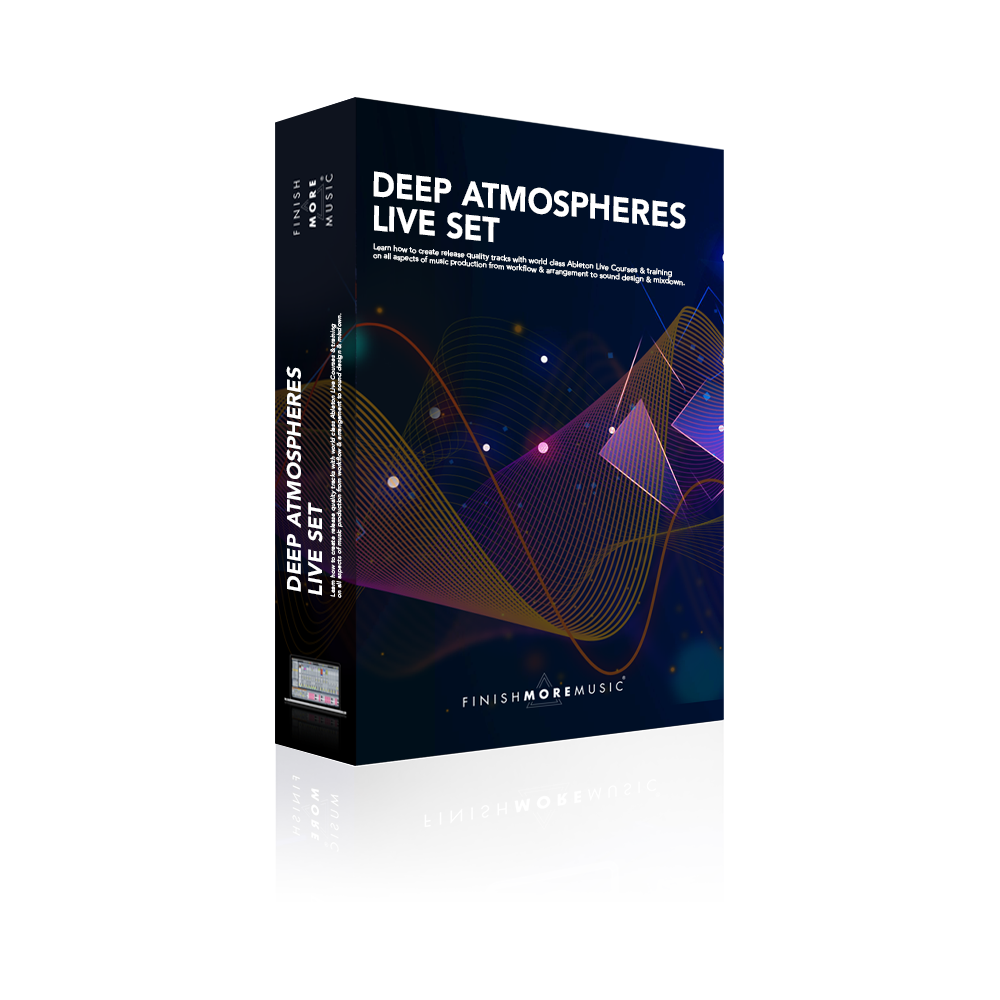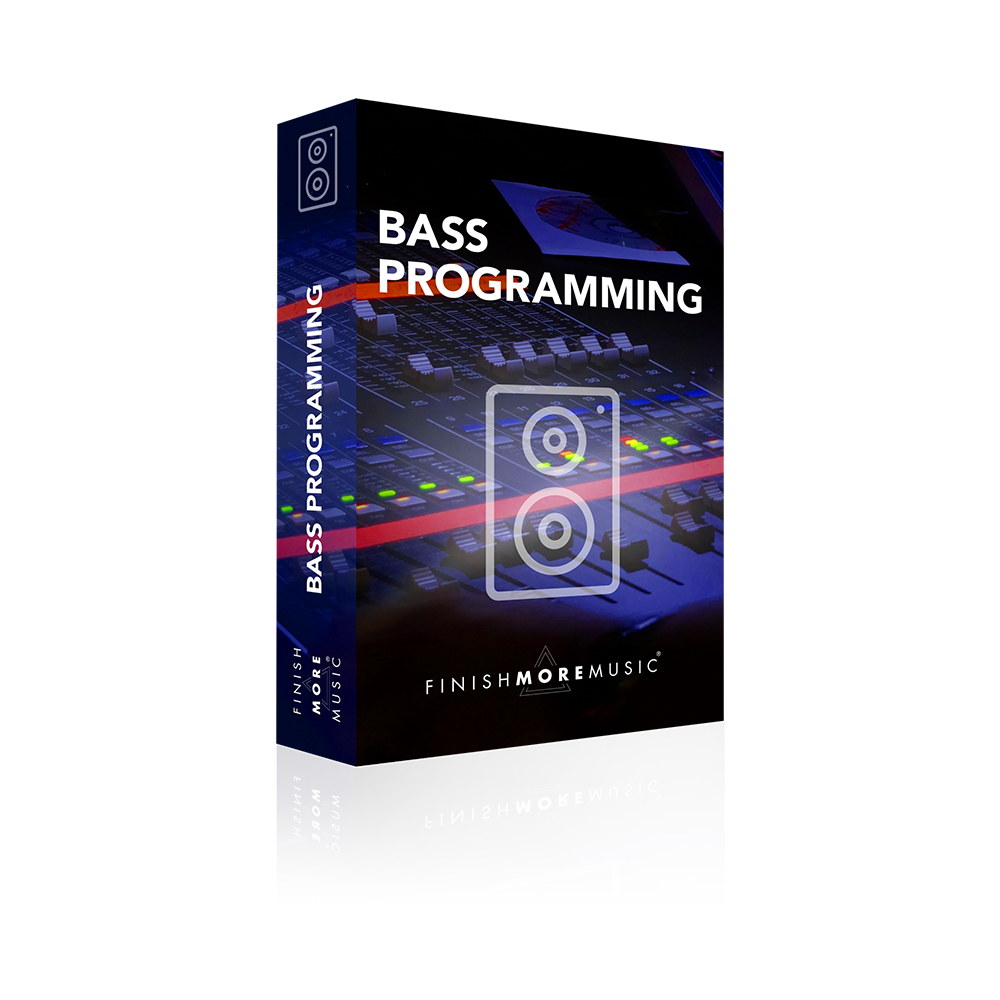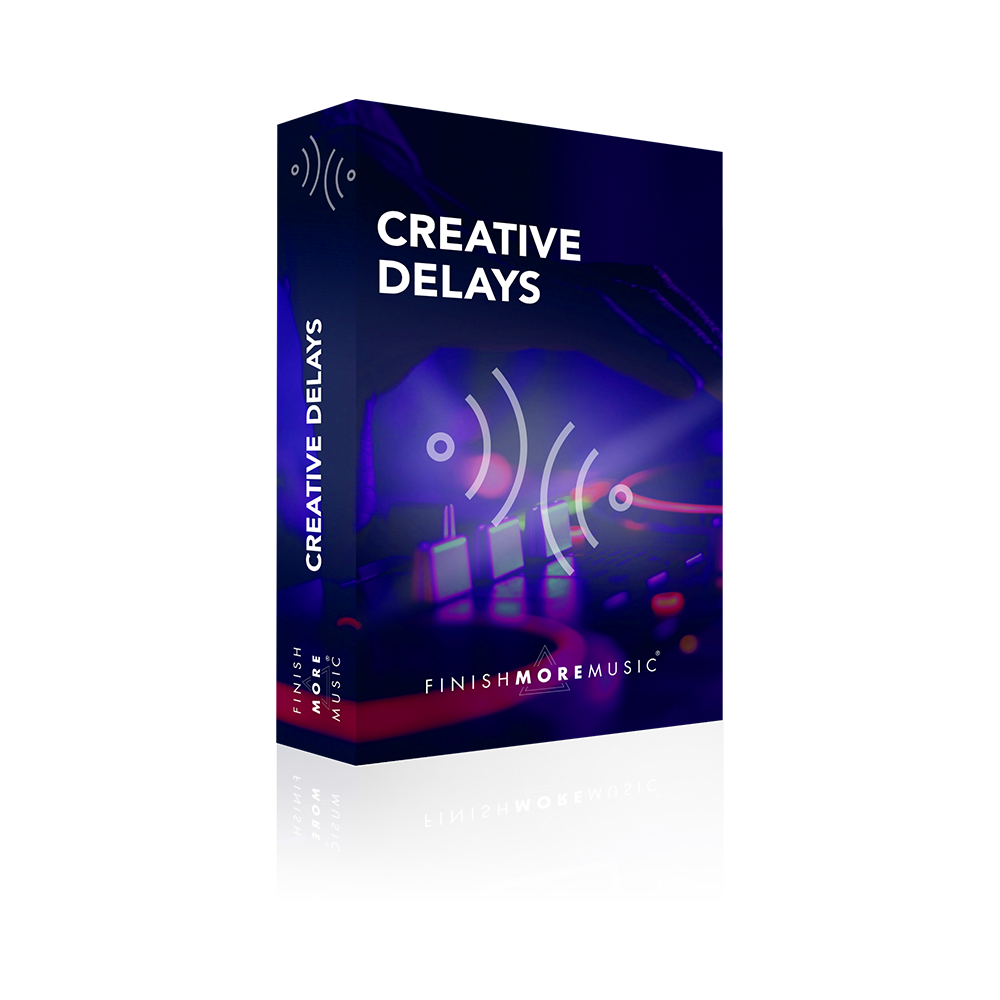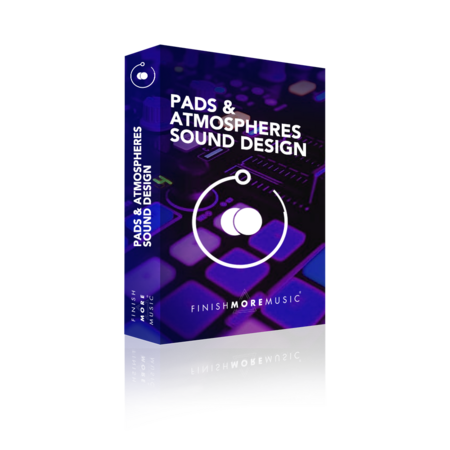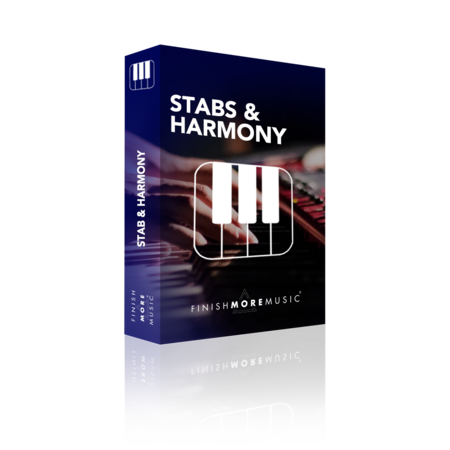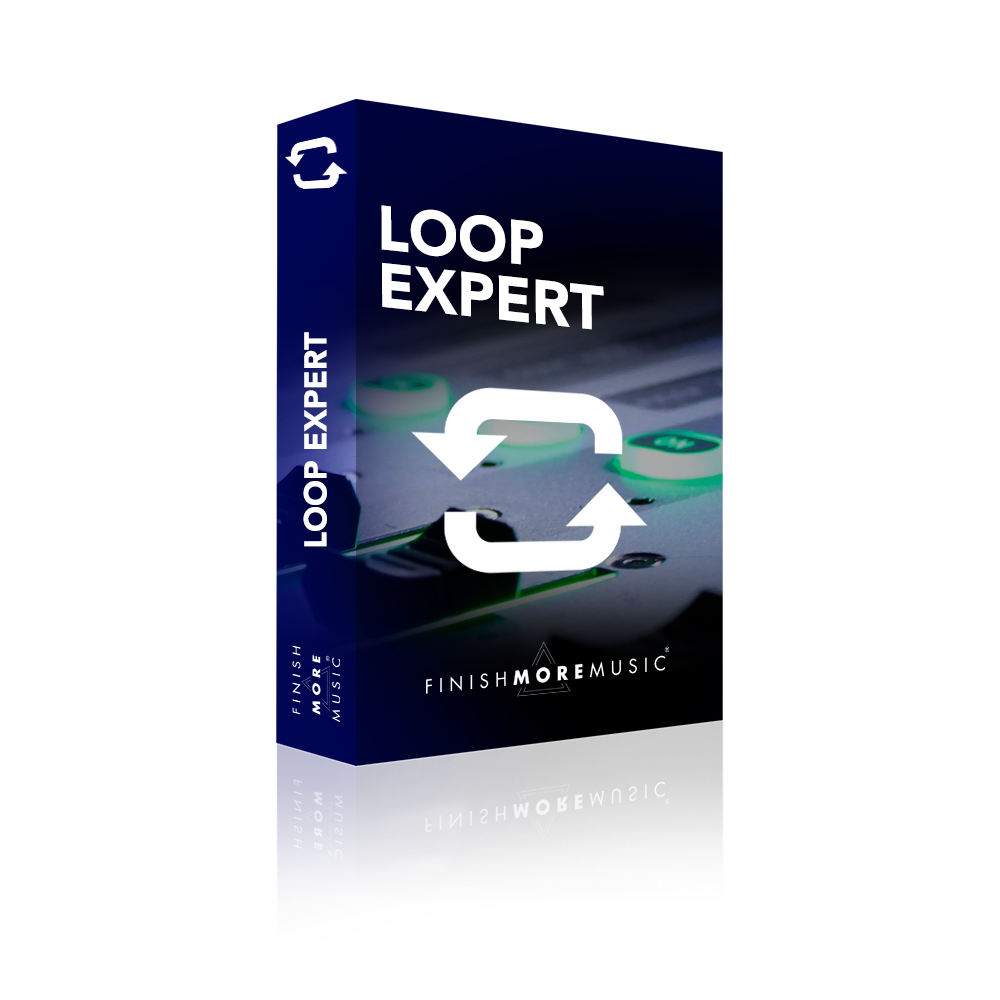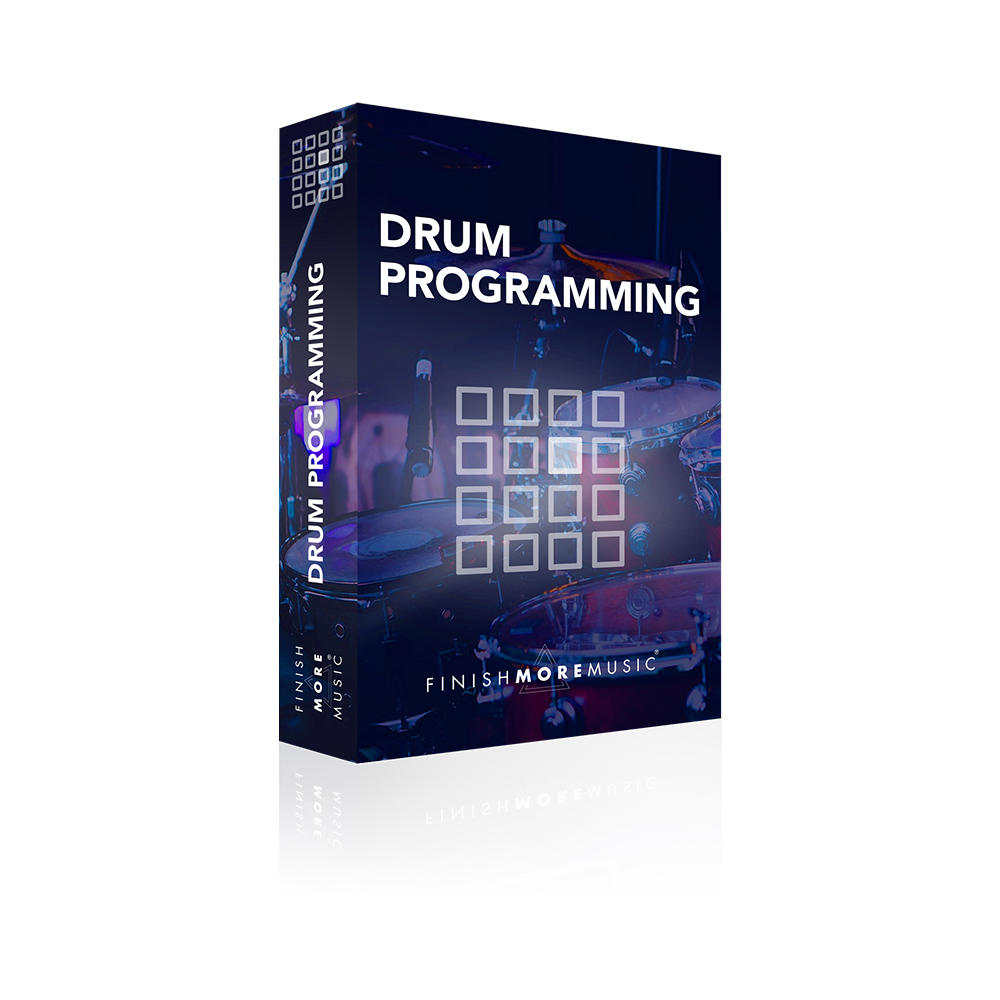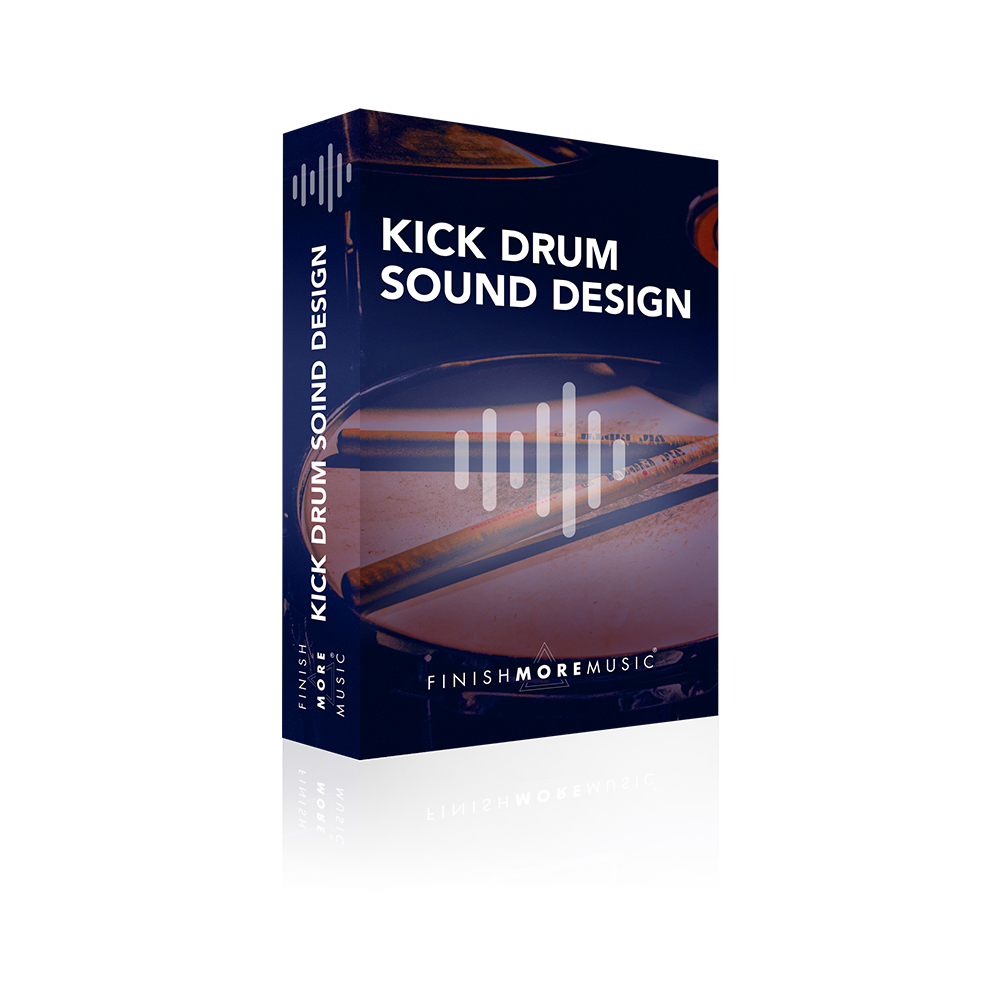This is an automated transcription which may have some occasional errors in spelling and grammar.
Keith Mills: (00:01)
Hi, I’m Keith Mills. And this is episode number 87 of the Finish More Music Podcast. And today we’re talking about the curse of getting stuck in your head, over thinking, dragging yourself down mentally and seeing no progress with your art. Now, if that sounds menacing well, it really is because the lack of progress and constant exhaustion that’s caused by the never ending mental gymnastics will start to affect all areas of your life. And that makes sense, right? If you’re tired and unhappy with your progress, that’s going to affect your day-to-day life and the people in it. So in this episode, I’m going to deep dive into the causes of overthinking. I’ll share an experience with you that I had recently that really dragged me down. And I’ll give you my own recipe for how you can overcome it, because it’s a trap that so many of us find ourselves falling into. And sometimes we’re not even aware of it. So we’ve got a lot to get into. Let’s go.
Keith Mills: (01:11)
This is the Finish More Music Podcast, a show for underground dance music, producers who want to finish more and better music, and to share it with the world. My name’s Keith Mills. And every week we’ll dive into the mindset and creative strategies that will help you to move further, faster along your music production journey.
Keith Mills: (01:47)
So I want to start out with a few extensions of gratitude, really. It’s been a crazy couple of weeks. And first of all, if you watched the video series, if you commented underneath the videos, if you reached out to me and this is the free Finish More Music workshop, I do thank you. It meant the world to hear all of your thoughts and how it affected people for the best. It was absolutely amazing, of course, a warm welcome to all of our new members inside of Finish More Music. But also if you watched the series or you’re on our mailing list and you watch our your tutorials and you listen to the podcast and you weren’t able to join us this time in FMM, obviously this was a busy time in terms of emails coming out, because we wanted to let people know about the video series.
Keith Mills: (02:36)
And of course we wanted to let people know that there was an opportunity to join FMM. We’re only open for five days. It’s a long time until we next open, deep into next year. So we want to make sure that everyone who does want to jump in and have a positive impact on their music gets the chance and they don’t miss it. So if you didn’t join, of course, you’d have still received a lot of notifications and emails and so on. So I do thank you for bearing with us, but everything is returning to normal now. And my team and I are a hundred percent focused inwards, working with the new members of FMM. It’s incredibly exciting, both for existing members and our new members, because there’s a real buzz. When new people join, there’s a whole new bunch of perspectives and ideas and journeys, and just excitement that kind of gets injected into the community, which is fantastic, the breakthroughs.
Keith Mills: (03:31)
And we’re only like just over a week in now. Absolutely incredible people talking about how they’ve gone from a place where life was pretty dark and heavy. They weren’t making any progress with their music, they’re now positive. They’re upbeat. It’s affecting their family, affecting their work life. People who are finishing tracks, particularly those who thought that they didn’t have enough time. They were too busy, too many commitments in their life to be able to do it, that they couldn’t achieve much with smaller pockets of time. Now they’re already finishing tracks and saying things like, you know, I’ve learned to fill every second in the studio productively, I’ve learned how to make meaningful progress with short periods of time. And those breakthroughs are worth their weight in gold, because if you’re a long-term listener to the show, you’ll know that I talk a lot about beliefs, beliefs being lies that we hold to be true.
Keith Mills: (04:29)
And we all have them, every single one of us. And often times they’re invisible to us. So we don’t know that we’re holding onto something, some sort of belief that’s actually holding us back. It’s a limiting belief. That’s why we call them limiting beliefs. They’re limiting us from achieving what we want to achieve, and we’re often unaware of them. And if you think I’m too busy to fit music in, then that becomes your reality. If you think, well, if I just add 15 minutes here and there, and then I can do an hour over here, the 15 minutes don’t really count for much. That’s a belief. It’s a lie. And we know it’s a lie because there are so many people in FMM who with 15 minute chunks of time. And if you listened a few weeks back to Justin Hancock’s amazing interview.
Keith Mills: (05:18)
And if you didn’t check all of those five interviews out with members of FMM, I do recommend that you go and listen to them because there’s so many amazing breakthroughs and they bust through so many of these limiting beliefs, but we know if other people are doing it, it must be possible. And it’s a lie to think that we can’t fill the time. And it’s a lie to say that we’re too busy. We’re very rarely too busy, marriages, birth of a child, unfortunate circumstances, illnesses, change of jobs, may be for a short period of time. But the members of FMM are flat out busy, full-time jobs, often careers, not just jobs, but like real careers, young families, other hobbies and they still smash it with their music. So it’s been an incredible week already in the community. I’m really excited tonight. I’m going to be jumping in doing a training session like we did last week, absolutely buzzing.
Keith Mills: (06:17)
I like to get really hands-on and help people to progress as quickly as possible. Because once you start making the breakthroughs and you bust through the beliefs, then you put more time, energy, and effort into your music because you can now see the possibilities. And that’s when things really, really start to move forward at a hell of a late.
Keith Mills: (06:37)
So what are we talking about in this episode? What we’re talking about, the curse of over thinking. This really came to my mind a lot in the last couple of months when it was really nitty gritty time on writing the video series, I’d done loads of research. There were a few false starts. As there often are in very, very large creative projects like this one.
Keith Mills: (07:09)
And I caught myself on a number of occasions falling into the trap of over thinking. So this is the act of trying to solve problems, trying to solve difficult, trying to think your way to the best possible solutions and outcomes and ideas, and trying to do it all in your head instead of actually taking action. So in my case, instead of actually getting the words out onto paper or word processing, whatever it might be, and that’s the same is absolutely true of music and any other art form. In fact, most things that we do in life, this is true. We can fall into a trap of trying to think ahead in the music.
Keith Mills: (07:50)
Trying to think of what, or how this piece of music might be perceived and how this might work out further down the line. And if I start working on this now, how would that affect something else? And isn’t there a more efficient way of doing this and all of these things start flying around in your head.
Keith Mills: (08:08)
And the art form is to be able to kind of bring yourself away from this to be able to get on and do the work. And so I had to take a step back and sort of revisit some of the lessons, the very things I teach, interestingly, but applied to a different art form because I obviously teach music. Writing a script is something totally different from an artistic perspective, but it’s still creativity. And the creative process remains the same. So I created a little recipe and I’m going to give that to you a little bit later on in the episode. But first I just want to talk about, I guess, the juxtaposition of taking action versus staying in your head.
Keith Mills: (08:52)
You would have heard me say this before. Action creates clarity. If you take action, then you learn. Then you discover, you get direction, you get hints tips, clues about the piece of art that you are working on about the options, the path to take new ideas, fire up in your mind, you build and create your own inspiration. And that ties in really nicely to one of my favorite quotes. Chuck Close, prolific creative. He said inspiration is for amateurs. The rest of us, just show up and get to work. And you’ve probably heard that before, but there’s a little bit more to the quote. He goes on to say a few more things. And one of them is all of the best ideas come out of the process. They come out of the work itself. So let’s just ruminate on that for a second. Roll that around in our minds for a second, all of the best ideas come out of the process. They come out of the work itself.
Keith Mills: (09:59)
They don’t come out of trying to roll things around in your head, trying to fix stuff. They come from just getting on inspiration is for amateurs. The rest of us show up and get to work. The rest of us show up and take action. Action creates clarity. And one of the biggest enemies of taking action is overthinking. I love this quote, the art of creating problems that aren’t even there. Overthinking is the art of creating problems that aren’t even there. Now, if I dare to enhance such a great quote, I would say it’s the art of creating problems that aren’t even there whilst missing the opportunities that are. Because by not taking action, we don’t learn. We don’t grow. We don’t discover new things in our art, new ideas. Won’t come to us. We won’t get the context. We won’t make the connections in our brain because we’re just sitting there going around in circles.
Keith Mills: (10:59)
And here’s the rub. Overthinking is fear of failure in disguise. That’s all it is. It’s a fear of failure. We say things like if I, if I just get started now, you know, if I do take action, then I’ll be too slow. You know, if I think about this, I could be more efficient. I’ll be wasting time if I get started. Whereas if I think this through and come up with a great plan, then I’ll take all of the right steps. I’ll be really efficient. Then the question becomes, but what is overthinking actually doing? What’s slowing you down. Isn’t it is the actual thing that’s creating the problem. Or if I just get started, if I just take action, then I’ll get stuck. I’ll get stuck somewhere along the way. Cause I haven’t thought this out thoroughly. So like you can see these are solving problems that aren’t there. Like I’ll be too slow. I’ll be stuck, stuck with what we don’t know. We haven’t started. And again, what is overthinking doing? It’s keeping you stuck.
Keith Mills: (12:07)
So again it’s creating the problem that you’re trying to solve. It’s creating a problem that isn’t there for you to solve. If I just get started, if I just take action, then I’ll be disappointed with the results, which means I’ll be disappointed with me, whatever those results are. The quality of the music, the speed that I took to get the music finished.
Keith Mills: (12:27)
The fact that I thought I knew more than I really do, and that’s been highlighted, you know, I’ve got taught, shining on me. I thought I had the solutions. I thought I’d watched enough tutorials. And ah, turns out I’ve been wasting some time along the way. And we can choose to keep wasting time by watching Loads of tutorials or we can choose to get started and discover that some of that was wasted time and that’s alright and I’ll get on now and I’ll make meaningful progress.
Keith Mills: (12:55)
But it’s the same thing, right? If I just get started, I’ll be disappointed with the results. If the result you want is finishing music, writing great music, what overthinking is doing is stopping you from doing that. So it’s this classic example of something that we do that creates the problem that we’re trying to avoid. Worth thinking about overthinking is creating the problem that you’re trying to avoid. Staying in your head is never the answer, getting started is.
Keith Mills: (13:34)
And here’s the killer with overthinking. And I totally caught myself doing this. You just go in endless cycles, there is never a solution. We don’t really learn new things. We just overwhelm ourselves with more and more ideas and it’s utterly draining and it consumes all your bandwidth. And this is the mad thing about it. The more you think about it, the more exhausted you become, the less chance you’ve got of getting started.
Keith Mills: (13:57)
Another great quote. I feel like it’s a bit of an episode of quotes, but they’re just coming at me now. Tiredness makes cowards of us all. So this was Cain Velasquez I first heard say this. I don’t know whether he’s the originator of the quote. He was a UFC heavyweight champion, cage fighting, absolute beast of a guy, Mexican chap. And he trained like an animal. The reason that he did it was because he said tiredness makes cowards of us all. If my enemy tires, before I do in the octagon, I’m going to win. So I better make sure my stamina’s there.
Keith Mills: (14:43)
And it’s the same deal with this. If we’re putting off starting something, it takes some courage and some bravery to get going. But if we exhaust ourselves with overthinking, tiredness makes cowards of us all. We won’t have the energy and the courage to get started. So it’s this kind of endless cycle of exhaustion, frustration, drain on our capabilities, in short it’s self-abuse. It really is.
Keith Mills: (15:15)
Sometimes you have to talk in those terms and wake up to how you’re treating yourself in order to move forward. Because that is really all it is. If you think about the outcome of this, you’re not getting the result you want. And instead you’re crushing yourself by trying to figure it out in your head and tiring yourself out. And here’s the rub. If you just stay stuck in this one place with anything, not just your music, but we’ll stick on art and music now. But if you stay stuck in one place and you don’t make progress, what happens?
Keith Mills: (15:51)
Start to get down, right? Start to beat yourself up. Negative self-talk comes in. Demeanor goes down that then affects other people. It affects your day-to-day life affects all the different things you do because something is weighing heavily on you. You’re tired from it. You’re not seeing any progress. You’re giving yourself a hard time. It’s a big deal to be aware of this too, to get out of our own way out of our head and into taking action.
Keith Mills: (16:20)
The long and short of overthinking is it’s worrying about the future, trying to solve problems in advance. When you simply don’t have the data, you simply do not have the information to process because you’re not doing the thing. You’re trying to figure it out. And you’re missing all of the clues and the hints and the tips because you’re not doing it. And you’re figuring out problems that aren’t there. You know, there’s that saying? We’ll cross that bridge when we come to it, it’s a brilliant saying. Let’s not worry about it, let’s cross that bridge when we come to it.
Keith Mills: (16:53)
Because here’s the deal. Sometimes we take a different route and we don’t even reach that bridge. And sometimes we reach the bridge and it’s perfectly fine. There isn’t even a problem with it. It’s just a bridge. That’s easy to go over. And sometimes there is a problem with it, but we’re now more equipped to get over the bridge because we’ve learned, we’ve learned and we’ve grown as an individual stuff that isn’t happening when you’re overthinking, no one ever progressed and built their skill set by staying in their head. Nobody.
Keith Mills: (17:28)
Taking action is the only way to get the clarity, reduce the overwhelm. The thing feels overwhelming because we’re not starting. So again, we go back to that idea. I was talking about a problem of our own making. So how this looks too big. There’s too much. I’m overwhelmed by this. I’ll just try and figure this thing out. And then I’ll get started.
Keith Mills: (17:52)
And the very act of trying to figure it out is building in problems that aren’t there and increasing the overwhelm. The only way to become a great artist producer musician is to take action and to do it regularly, right? And this is one of the first things that we teach the new members when they join FMM is surrender to the process because that’s really what it takes. It takes letting go. Don’t think about it. Just let go take action. And of course your mind will kick off. And awareness is, you’re going to see from my recipe, is a big piece of this is to be aware that our mind will kick off. Particularly if it’s something new is something different. And in art, it’s always something new. You get used to the process. You get used to the workflow, but if you’re being original, it’s always something new.
Keith Mills: (18:44)
So there will always be a little bit of kicking off, right? And in the FFM the process and the system we teach is unique. It’s very different to what most people have seen before. And a lot of it is counter intuitive. So people are like, God, well, what happens if I do this now, what will happen in the future? How will this technique work later on in the track? I mean, if I do this now, I’m not used to doing that. Am I wasting my time doing this? Would it be more efficient to do that? Should I be learning this? Do I need a new tutorial? Won’t it be more efficient if I do this thing first or do it in that order instead? Boom. Your mind explodes. That’s overthinking for you. How on earth do you keep up with that? And can you remember all of those things I just said? No, of course not. That’s why you go around in circles. You can’t remember it. You’re not sure. You solve a problem that didn’t exist. Forget how you solved it. And then you think what is going on? It’s absolute madness. It’s an exhausting, scatterbrained approach.
Keith Mills: (19:47)
So whenever you’re doing something new where it feels like you’re stepping off of the cliff, you’re going to get that pushback. And so that’s why it’s one of the things that I always bring into the awareness of new members. This is going to happen. So be aware of it, know that these things are going to be flying around in your head and just like meditation, we’ll just let them pass and just trust the process.
Keith Mills: (20:15)
And I guess the great thing for members of a community, any community is that you have other people to lean on. And when you see that they followed the process and it’s worked and they say, I feel, or I felt rather like you feel now, then you can believe because you see other people doing it. We go back to this belief thing. Oh I do. I dunno, can I do this? This isn’t going to work for me. Someone else said, look, I was in exactly the same boat as you and this totally worked for me. Just trust the process. And then you have that belief to take the step forward, see other people succeed in and have their support is huge.
Keith Mills: (20:53)
So let’s move into the recipe. I’ve kind of alluded to a few bits here when I caught myself overthinking and it took a few goes because I was kind of up against it. We had so much going on. I kind of lost awareness of it. And these things sneak up on you. Right? And then I caught myself doing it and I was like, I’ve been doing this a lot in the last, probably couple of weeks. This isn’t doing me any good. I’m feeling run down here. And it’s of my own doing. And guess what? The script isn’t moving forward. How am I going to fix this? So I just came up with a little kind of plan.
Keith Mills: (21:30)
Step one, as I mentioned is being aware. So awareness is the key to everything. What we can’t see, we can’t solve what we can’t see. We can’t solve. And as I said, a lot of our beliefs and a lot of the things we do are on autopilot, we’re not even aware of the way that we steer our own lives and the limitations that we put up. So the first thing is to become really aware. If you’re someone who’s listening to this podcast right now going yeah, I do overthink quite a lot. Get close to what that feels like. When does it happen the most often for you?
Keith Mills: (22:10)
If you don’t meditate, I really recommend it. Even if it’s like 10 minutes a day, the Headspace app is perfect if you’ve never done it before, because it teaches you awareness and it teaches you how to recognize when you’re doing something, just let it pass. So become aware so you can catch yourself doing it.
Keith Mills: (22:29)
And then here’s what I did. And I think this works so well. You give yourself permission to think, but you set a timer on it. So think how that feels. On the one hand we could say, well I’ve done this. I’m doing this again. Oh my God. And the friction or the other one is, Oh, I’ve noticed myself doing this. I do feel that I need to think about this. Maybe how I’m going to get started. I give myself permission to think there’s 10 minutes on the clock. How much more relaxing is that? And when the 10 minutes is up, I’ll be as ready as I can be. And I’m just going to get going. And some good questions are, what steps do I need to take to get started here? Or even better? What’s the minimum number of steps I can take to get started? How can I simplify this to make it as easy as possible to get started?
Keith Mills: (23:30)
And what do I want to achieve in this session? So this is the old divide and conquer. This is the take the overwhelm of doing something massive and writing a piece of music is a big deal. If you particularly, if you haven’t done regularly, there’s a lot going on. So what do I want to achieve? I’ve got 30 minutes. What am I going to aim to get done in 30 minutes? But forget about quality. Just what is the process? What steps am I going to go through here? What is it that I want to get done? Oh, I just want to finish this session with a loop, a drum, drums, and bass in it. Or I just want to write some melodies. What is it that you’re going to do? And that’s like your little target and straight away, you can feel of the heaviness of this starts to go away.
Keith Mills: (24:21)
Now the voice might still come up. Yeah. But shouldn’t you learn this? Isn’t it more efficient to do that. And that’s where it’s really important to just go back to the fact that the answers lie in the process. Let’s go back to Chuck Close. Inspiration is for amateurs. The rest of us, just show up and get to work. All of the best ideas come out of the process. They come out of the work itself. So it’s realizing that the overthinking isn’t where the answers lie, that just doing this one other thing is not where the answers lie, getting started is. That’s where all of the truths and you’ll get close to the what is, and not the beliefs will come from and focus on the positives. Not all the things that might go wrong. Like that’s a choice you can choose to think, Oh, I might fail here.
Keith Mills: (25:13)
It might be too slow. It might be this. Or you can choose to say, I know I’m going to learn from this and I’m going to grow. I’m going to discover new things. I know that by chipping away at this bit by bit, I will reduce the overwhelm. I know I’m going to gain clarity. Okay. That’s good enough. It may not be the best possible thing I could do right now, but it’s a sight better than doing nothing. So I’m going to begin and I will learn what the best thing to do is by keep getting on, keep following my creative process, keep finishing pieces of music. And if the resistance is still there, I love this quote. I’m not sure who said this. The hardest part is just before you start. I love that because it really puts it into perspective. You’ve got up, right?
Keith Mills: (25:59)
So all I’ve got to do is just get over this one second gap between me not starting and me starting. And it is as simple as that. I’m either sitting here thinking about it or I’ve started. It’s like one second. It’s a one second moment. And that’s the hardest one second to do so the recipe awareness, permission to think in a short space of time, if you need it, of course, if you catch yourself and you know, I don’t need to think about this. I know exactly what I’m doing. I don’t need a tutorial. I don’t need more gear. I don’t need to read this review. I can just start then. That’s fine. But if you do think are not, I’m a little bit overwhelmed and not sure what to do. Take a breath, stick five minutes, 10 minutes on a timer and then take action and get started.
Keith Mills: (26:47)
Having faith that the answer will come from the process. So in summary, action creates clarity. If you take action, then you learn. You discover, you build and create your own inspiration. You learn about your music. You build yourself up, you grow, you develop as an artist. Overthinking is the enemy of this, it’s the art of creating problems that aren’t there whilst missing the opportunities that are and think about this just for a second. Like so many of these crazy things we do like perfectionism overthinking is trying to predict the future. Can you do that? Do you have that in you? You don’t, you wouldn’t be listening to this podcast. You’d have won the lottery for the 10th time running and be in the middle of the ocean on your mega yacht, of course you would.
Keith Mills: (27:43)
It’s impossible to predict the future. So it’s pointless. Overthinking is trying to predict the future, which is impossible. Therefore it’s pointless. And as we discussed, it’s worse than that, it’s self abuse. It is exhausting, frustrating, draining. You make no progress and you drag yourself down into the ground instead.
Speaker 3: (28:07)
So if this episode has resonated with you, it’s s not you, it’s not a hopeless thing. It’s not, this is you and you’re fixed forever. Brains have plasticity. We can change. We can develop. As you know, I’m a perfectionist. And I feel like that never quite goes away. But I have strategies for beating it. The same thing with overthinking. If something big comes up, there’s a strategy. There’s just a process to follow and anyone can follow it. But you’ve got to give it a try. Whether you try my recipe or you do something else, just know that you absolutely can overcome it. The secret is to get started. This particular recipe that I’ve given you worked for me every single time. I got a lot more done in a lot less time. I had a lot more energy and I was a much more positive person as a result when I caught myself doing it.
Keith Mills: (28:58)
So I hope you enjoyed the episode. Please do ping me. Reach out, DM on Instagram @iamkeithmills. I’d love to hear your thoughts on this. Are you an overthinker or a perfectionist? What gets in your way the most when you’re writing music and do you have any ideas of what you’d like me to discuss in the show? So a couple of the episodes I’ve talked about things that have been inspired by people reaching out, including some questions that I’ve directly addressed. Maybe there’s something that you’d like me to cover if I’m able. Absolutely. We’ll stick it on the list for you. So it’s @iamkeithmills on Instagram. I hope you enjoyed the show. Show notes are at finishmoremusic.com/087
Keith Mills: (29:42)
Do take care, happy music making, and I’ll see you next time.
Keith Mills: (29:56)
If you’re serious about getting your music heard and climbing the ladder as a music producer, one of the skills you absolutely must master is remixing. That’s why I put together a brand new completely free ebook for you called the art of remixing. It features the most prolific remixers from my Finish More Music community, sharing their strategies for creating successful remix projects, ready for you to share with the world. So jump over to www.finishmoremusic.com/remix and download your free copy. Now you’ll learn technical setups for creating your remix, how to add your own flair whilst respecting your original artists track, how to create quickly to a tight deadline, how to extract melodies and harmonies, and so much more, as well as taking the opportunity to get more of your creative output into the world.
Keith Mills: (30:56)
Remixing is an amazing tool for building connections with other artists and strengthening your relationship with label owners. In short remixing is essential. Try to think of a top level producer who doesn’t have a bunch of great remixes to their name. You can’t right? So make sure you master the art of remixing so that when your opportunity comes, you’re ready to take it with both hands and accelerate your growth in the music industry. The ebook is totally free. So dive over now to www.finishmoremusic.com/remix and grab your copy. See you in the next episode.
